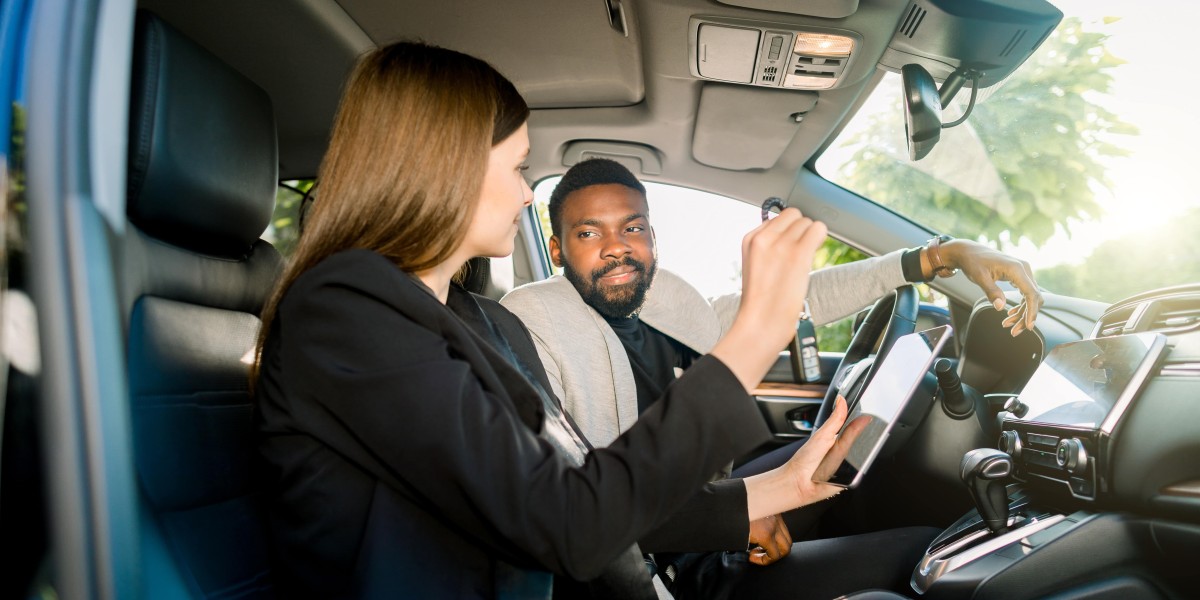
Understanding the UK Driver's Licence: A Comprehensive Guide
Obtaining a driver's licence in the United Kingdom is a substantial milestone for lots of individuals. It not just signifies self-reliance but also provides higher flexibility in individual and expert aspects of life. This short article aims to provide buy a driver license comprehensive overview of the uk online driving licence driver's licence, consisting of how to apply, various types of licences, and different regulations associated with driving in the UK.
Summary of the UK Driver's Licence
In the UK, a driver's licence is an official document that permits a private to run automobile on public roads. The driving licence system in the UK is structured and controlled by the Driver and Vehicle Licensing Agency (DVLA).
Types of UK Driver's Licences
The UK offers a number of types of driving licences, each customized for different classifications of automobiles. These consist of:
Provisional Licence:
- Age Requirement: Minimum of 17 years
- Enables learners to drive under certain conditions.
- Can not drive without a certified driver accompanying them.
Complete Licence:
- Issued as soon as a person has passed both the theory and useful driving tests.
- Numerous categories offered based upon vehicle types:
- Category B: Cars
- Category A: Motorcycles
- Classification C: Large products vehicles
- Classification D: Buses
International Driving Permit (IDP):
- Required for driving in some foreign countries.
- Provided to UK licence holders at Post Office branches.
Momentary Licences:
- For individuals who may have lost their licence or are waiting for updates on their existing licence.
The Application Process for a UK Driver's Licence
Getting a driver's licence in the UK includes a number of steps, whether for a provisionary or complete licence. Here are the important steps in detail:
Step 1: Obtain a Provisional Licence
- Eligibility: Individuals must be at least 17 years of ages to apply.
- Application: Applications can be made online through the DVLA website or through paper forms offered at post workplaces.
- Documents Required:
- Proof of identity (passport or another official ID).
- National Insurance number (if readily available).
- A postal address in Great Britain.
Step 2: Study for the Theory Test
- Content: The theory test includes multiple-choice questions and a threat understanding test.
- Preparation: Various resources are offered, including online courses, apps, and books that aid in preparation.
Step 3: Pass the Theory Test
- The theory test need to be cleared before trying the practical driving test.
Step 4: Practical Driving Test
- Knowing and Instruction: An individual can take driving lessons with a certified trainer or discover with an authorized accompanying driver.
- Booking the Test: Once confident in driving capabilities, prospects can book their useful test online.
- Test Components: The dry run examines driving skills, maneuvers, and real-world driving conditions.
Step 5: Receiving the Full Licence
- After effectively passing the useful driving test, the DVLA will provide a complete driving licence, which permits people to drive separately.
Guidelines and Regulations
Maintaining a legitimate driving licence in the UK requires adherence to several guidelines and policies:
- Renewal: Licences should be renewed every ten years. Renewal can be done online or via paper application.
- Points System: The UK employs a charge points system. Particular traffic offenses result in points being contributed to a driver's licence, which can lead to severe consequences if the build-up surpasses a particular limitation.
- Medical Conditions: buy drivers licence need to notify the DVLA of any medical condition that could affect their capability to drive.
Common Challenges in Obtaining a Licence
Obtaining a driver's licence can in some cases be challenging. Here are some typical obstacles faced by aspiring drivers and suggestions on how to tackle them:

- Nervousness During Tests: Many candidates experience anxiety during their theory or dry runs. It is a good idea to take mock tests or take part in practice sessions to develop confidence.
- Failure to Pass Tests: If a private fails their tests, they can retake them after a specific waiting duration. Preparing with additional driving lessons or study materials can help in subsequent efforts.
- Comprehending Rules: The intricacies of road rules and policies may be frustrating. Enrolling in a credible driving school can offer clearness and insight into these policies.
Frequently asked question Section
1. For how long does it require to get a driving licence in the UK?The timeline varies based on the individual's knowing speed. Usually, achieving a full licence can take a couple of months, consisting of discovering time and the waiting period for tests. 2. Can I drive while waiting for my complete
licence?You can drive with your provisional licence if accompanied by a qualified driver who is at least 21 years old and has held a complete licence for three or more years. 3. What do I do if I lose my driving licence?You can request a replacementlicence by means of the DVLA site or through post, offering essential identification and paying the needed cost. 4. Just how much does it cost to get a driver's licence in the UK?Costs can vary significantly however typically consist of application fees , the theory test fee, useful test charges, and driving lessons. Overall, it may total thousands of pounds, depending upon individual circumstances. 5. Is there a minimum number of lessons I must take?There is no official minimum number of lessons mandated. Nevertheless, taking lessons till you feel great is a good idea. Getting a driver's licence in the UK is a fulfilling process that opens the door to mobility and flexibility. By understanding the actions included, the kinds of licences offered, and the policies governing driving, potential Drivers Licence Uk (Romapurtle.Top) can navigate the system effectively. Whether one is a learner or a skilled driver, remaining notified on the most recent policies and best practices is crucial to make sure safe and accountable driving within the UK.








